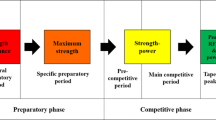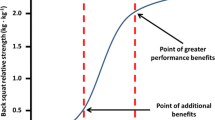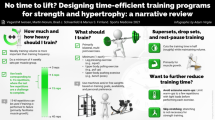Abstract
Research suggests an external focus of attention positively affects motor learning more than an internal focus; however, little research has considered this relationship in motor control situations. The present study examined the role of varying focus of attention conditions on dart throwing performance. Experts (n = 6) and novices (n = 6) performed 84 throws under two internal and one external conditions and in the presence and absence of knowledge of results (KR). Results indicated clear differences between experts and novices on both performance and motor control outcomes. Further, there was some evidence that movement execution was slowed in experts but not in novices, although results were somewhat inconclusive. Our analyses suggest that varying focus of attention affects temporal parameters of movement execution in experts but not spatial parameters. Interestingly, both experts and novices generally perceived all instruction conditions to be hindrances to performance, with the exception of the external focus with KR condition. Further work is necessary to determine the extent to which these results apply to other open and closed skills.







Similar content being viewed by others
Notes
An a priori data screening led to the exclusion of expert four. His mean throwing scores were more than two standard deviations away from the mean performance of the group of experts. Before throwing, he also reported much distraction by internal factors during the day and after throwing he and his teammates confirmed his performance was much worse than normal. Therefore, his scores were considered as outliers and not included in the following analyses.
References
Anderson JR (1982) Acquisition of cognitive skill. Psychol Rev 89:369–406
Beilock SL, Carr TH, MacMahon C, Starkes JL (2002) When paying attention becomes counterproductive: impact of divided versus skill-focused attention on novice and experienced performance of sensorimotor skills. J Exp Psychol 8(1):6–16
Beilock SL, Bertenthal BI, McCoy AM, Carr TH (2004) Haste does not always make waste: expertise, direction of attention, and speed versus accuracy in performing sensorimotor skills. Psychon Bull Rev 11(2):373–379
Castaneda B, Gray R (2007) Effects of focus of attention on baseball batting performance in players of differing skill levels. J Sport Exerc Psychol 29(1):60–77
Chi MTH, Glaser R, Farr MJ (1988) The nature of expertise. Lawrence Erlbaum, Hillsdale
Fitts PM, Posner MI (1967) Human performance. Brooks/Cole, Belmont
Gray R (2004) Attending to the execution of a complex sensorimotor skill: expertise differences, choking, and slumps. J Exp Psychol Appl 10(1):42–54
Hancock GR, Butler MS, Fischman MG (1995) On the problem of two-dimensional error scores: measures and analyses of accuracy, bias, and consistency. J Mot Behav 27(3):241–250
Hänsel F, Seelig H (2003) Aufmerksamkeitsfokus, Distanz, und motorische Kontrolle. (Attentional focus, distance, and motor control). Psychologie und Sport 10:91–99
Harle SK, Vickers JN (2001) Training quiet eye improves accuracy in the basketball free throw. Sport Psychol 15(3):289–305
Hossner E-J, Ehrlenspiel F (2010) Time-referenced effects of an internal vs. external focus of attention on muscular activity and compensatory variability. Front Psychol 1. doi:10.3389/fpsyg.2010.00230
Jaitner T, Mendoza L, Schöllhorn WI (2001) Analysis of the long jump technique in the transition from approach to takeoff based on time-continuous kinematic data. Eur J Sport Sci 1(5):1–12
Marchant DC, Clough PJ, Crawshaw M, Levy A (2009) Novice motor skill performance and task experience is influenced by attentional focusing instructions and instruction preferences. Int J Sport Exerc Psychol 7(4):488–502
Masters RSW (1992) Knowledge, knerves, and know-how: the role of explicit versus implicit knowledge in the breakdown of a complex motor skill under pressure. Br J Psychol 83:343–358
Masters RSW, Maxwell J (2008) The theory of reinvestment. Int Rev Sport Exerc Psychol 1(2):160–183
Maxwell JP, Masters RSW (2002) External versus internal focus instructions: is the learner paying attention? Int J Appl Sports Sci 14:70–88
Maxwell JP, Masters RSW, Kerr E, Weedon E (2001) The implicit benefit of learning without errors. Q J Exp Psychol Sect A Hum Exp Psychol 54:1049–1068
McNevin NH, Wulf G (2002) Attentional focus on supra-postural tasks affects postural control. Hum Mov Sci 21(2):187–202
McNevin NH, Shea CH, Wulf G (2003) Increasing the distance of an external focus of attention enhances learning. Psychol Res 67:22–29
Perkins-Ceccato N, Passmore SR, Lee TD (2003) Effects of focus of attention depend on golfers’ skill. J Sports Sci 21(8):593–600
Poolton JM, Maxwell JP, Masters RSW, Raab M (2006) Benefits of an external focus of attention: common coding or conscious processing? J Sports Sci 24(1):89–99. doi:10.1080/02640410500130854
Prinz W (1997) Perception and action planning. Eur J Cogn Psychol 9(2):129–154
Schmidt RA, Lee TD (1999) Motor control and learning: a behavioral emphasis. Human Kinetics, Champaign
Schöllhorn WI, Bauer H-U (1997) Linear vs. nonlinear classification of complex time course patterns. In: Bangsbo J, Saltin B, Bonde H et al (eds) Sports science in a changing world of sports, proceedings of the 2nd annual congress of the European College of Sport Science, Copenhagen. University of Copenhagen, pp 308–309
Schorer J, Baker J, Fath F, Jaitner T (2007) Identification of interindividual and intraindividual movement patterns in handball players of varying expertise levels. J Mot Behav 39(5):409–421
Totsika V, Wulf G (2003) The influence of external and internal foci of attention on transfer to novel situations and skills. Res Q Exerc Sport 74:220–225
Vickers JN (1996a) Control of visual attention during the basketball free throw. Am J Sports Med 24:S93–S97
Vickers JN (1996b) Visual control when aiming at a far target. J Exp Psychol Hum Percept Perform 22(2):342–354
Weiss S, Reber AS, Owen DR (2008) The locus of focus: the effect of switching from a preferred to a non-preferred focus of attention. J Sports Sci 26(10):1049–1057
World-Medical-Association (2008) Declaration of Helsinki—ethical principles for medical research involving human subjects. http://www.wma.net/en/30publications/10policies/b3/index.html. Accessed 10 May 2009
Wulf G (2007) Attention and motor skill learning. Human Kinetics, Champaign
Wulf G, Su J (2007) An external focus of attention enhances golf shot accuracy in beginners and experts. Res Q Exerc Sport 78:384–389
Wulf G, Höß M, Prinz W (1998) Instructions for motor learning: differential effects of internal versus external focus of attention. J Mot Behav 30(2):169–179
Wulf G, Lauterbach B, Toole T (1999) The learning advantages of an external focus of attention in golf. Res Q Exerc Sport 70(2):120–126
Wulf G, McNevin NH, Fuchs T, Ritter F, Toole T (2000) Attentional focus in complex skill learning. Res Q Exerc Sport 71(3):229–239
Wulf G, McNevin N, Shea CH (2001) The automaticity of complex motor skill learning as a function of attentional focus. Q J Exp Psychol Sect A Hum Exp Psychol 54(4):1143–1154
Wulf G, Weigelt M, Poulter D, McNevin N (2003) Attentional focus on suprapostural tasks affects balance learning. Q J Exp Psychol Sect A Hum Exp Psychol 56(7):1191–1211
Acknowledgments
The authors would like to express their gratitude to Heiko Ries, Sibille Abel and Ulrike Langenstein for their helping hand in data collection and analysis. The study was conducted at the Institute for Sport Science, University of Heidelberg, Germany.
Author information
Authors and Affiliations
Corresponding author
Rights and permissions
About this article
Cite this article
Schorer, J., Jaitner, T., Wollny, R. et al. Influence of varying focus of attention conditions on dart throwing performance in experts and novices. Exp Brain Res 217, 287–297 (2012). https://doi.org/10.1007/s00221-011-2992-5
Received:
Accepted:
Published:
Issue Date:
DOI: https://doi.org/10.1007/s00221-011-2992-5




